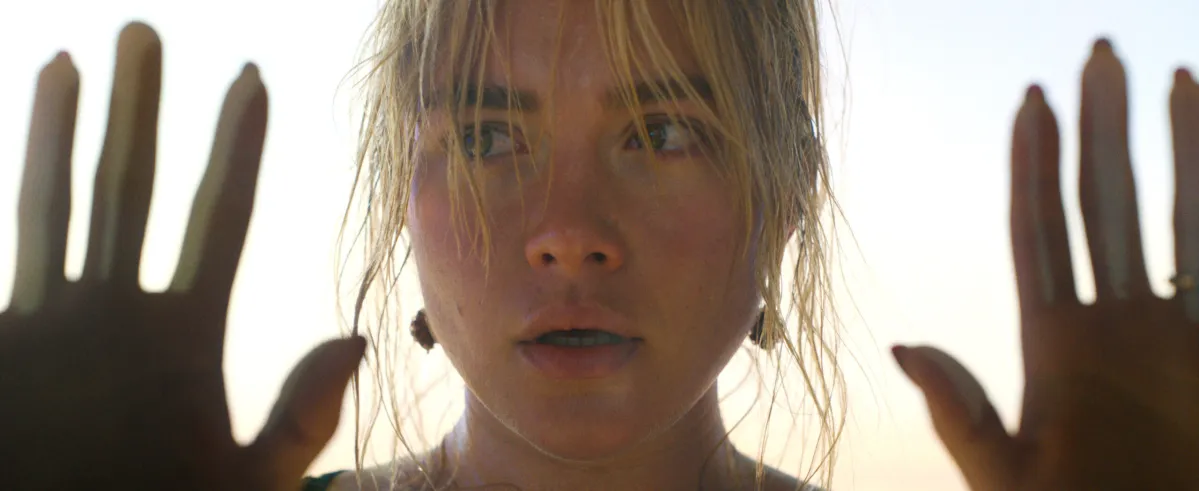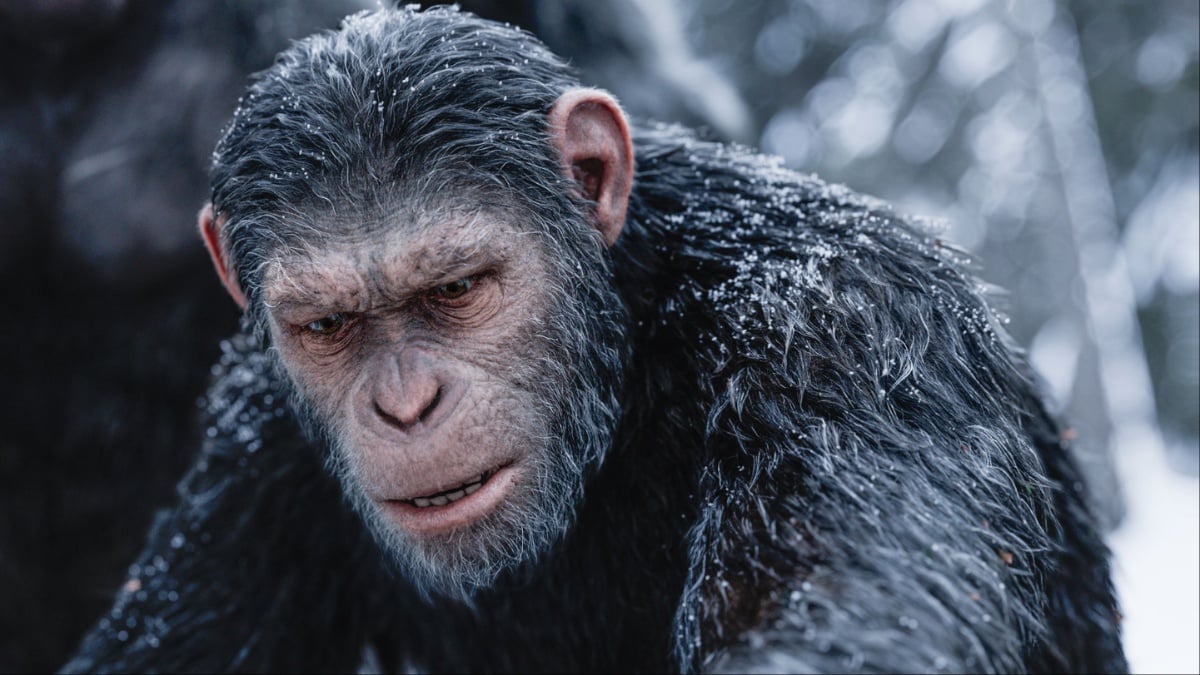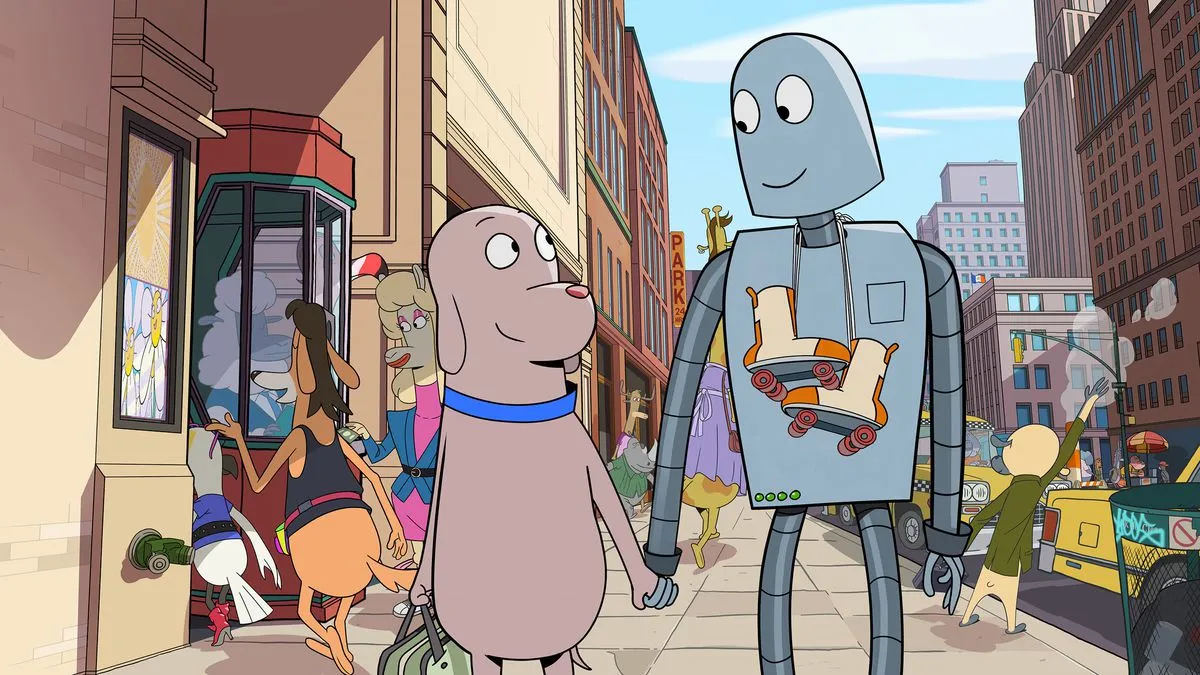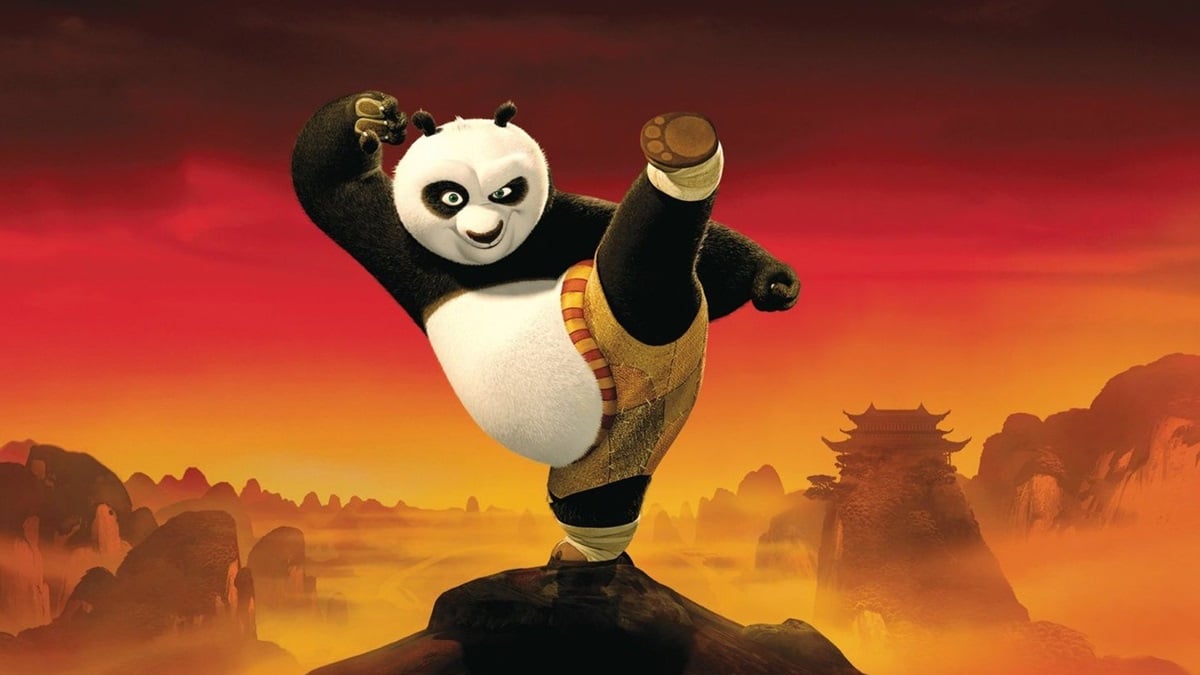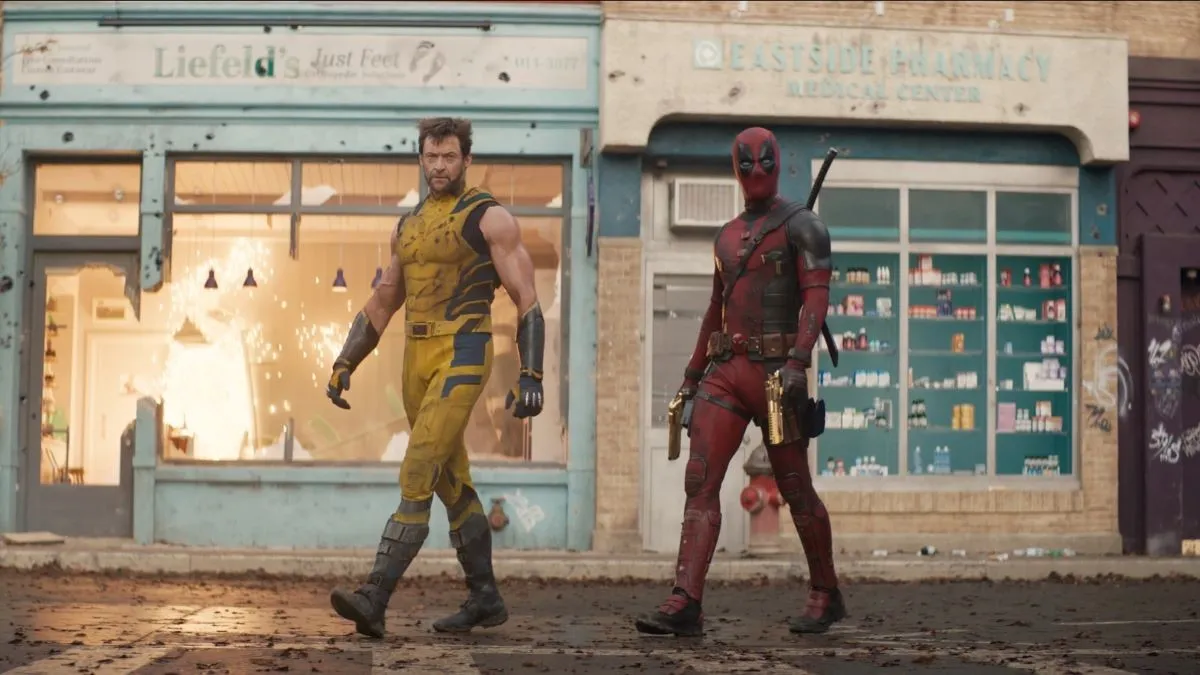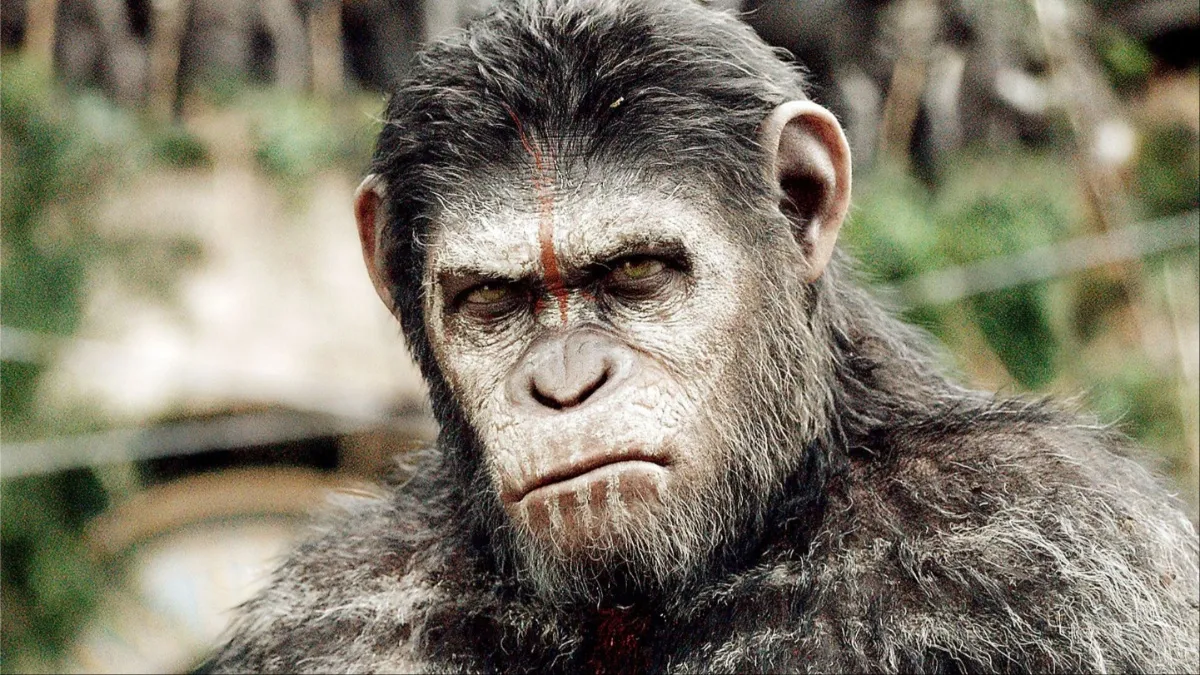Director Olivia Wilde’s new thriller Don’t Worry Darling has been a ride whether the cast and crew wants to get off it or not. Rife with rumors and a press event that has more people questioning whether or not actors are feuding (in multiple combinations), the movie has been pushed to the wayside in order to highlight the behind-the-scenes drama and it is both upsetting and also maybe a great PR move to get people into theaters.
But there are aspects of this movie that don’t hit as strongly as they could, and it isn’t the fault of the drama that seems to surround it. While beautifully directed and a masterclass in Florence Pugh’s acting, there are some storylines in Don’t Worry Darling that feel as if no one on the writing and directing side thought of the implications therein.
The story takes us to Victory, a town run by Frank (Chris Pine) and his wife, Shelley (Gemma Chan). There, the men of the town are changing the world and their wives are none the wiser as to what is happening when their husbands are away at work. Jack (Harry Styles) and Alice (Florence Pugh) seem infatuated with each other and are even poked fun at, by their neighbor Bunny (Olivia Wilde), for only having time for each other. It’s the reason they don’t have kids, and it just makes their love seem stronger on the outside, but as the film begins to unfold, it’s clear that this perfect little town is anything but, and what awaits us is a cautionary tale that we’ve seen before but with a new desert bow on it.
**Spoilers for Don’t Worry Darling lie ahead.**
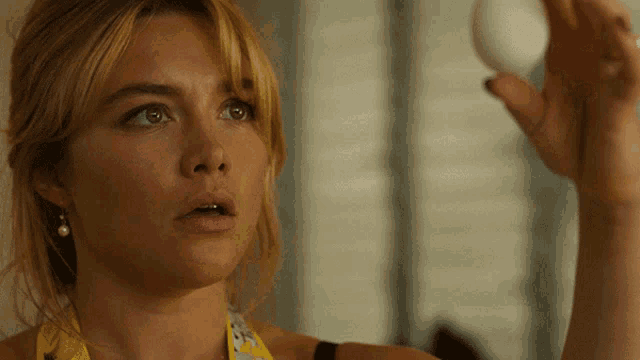
There is one thing that has been consistent throughout reviews for the film so far and was very clear even before I saw the film: Don’t Worry Darling is a visual masterpiece. It’s beautiful to look at, and even when you’re finding yourself bored by the simplistic story painting itself as something bigger than it is, you’re infatuated with images of dancing girls, Florence Pugh’s constant stream of gorgeous looks, and Chris Pine wearing the clothes of a cult leader I might understand.
The thing about Don’t Worry Darling is that for a simple premise that could have easily been hidden in the gorgeous scenery of the Victory project, the film is instead lost in a story trying to sell itself as something more. What we have is a story of men asserting their power and leaving the women in the dark—typical for the time period setting of Victory but less typical of the modern day (which plays into the movie in a way that made my skin crawl, in a way that I do believe was the intention of Wilde and screenwriter Katie Silberman), but the film loses its messaging to extra twists and unanswered questions that convolute (what could have been) a simple yet powerful message.
The cult of Chris Pine
A group of men following the words of Chris Pine to the T is probably the most believable part of Don’t Worry Darling to me. Frank seems to be the leader of Victory, the elusive figure who invites couples to his home, leads the women through their days with “Frank’s Music Hour,” and everything is centered around his messaging and what he believes is the best way to tackle the world for the men and women in Victory.
There are characters like Bill (Nick Kroll) and Peter (Asif Ali), who literally mimic what Frank wears. There’s a hilarious moment in the film when Frank walks into Alice and Jack’s home with his shirt undone and no tie, and both Bill and Peter run to do the same as him to look cool, and it highlights their obsession with Frank. It’s all about appeasing him. You don’t want to buck the system because then Frank will kick you out.
Control your wives or they’ll get you banished from the “important” work of Victory. He says that they’re “changing” the world, and it is clearly a cult in the way that the trailer made it seem, but it runs so much deeper than I even thought. These men want to be Frank, and Frank lets them idolize him in a frightening way.
Miss Flo’s power
What this movie boils down to is Florence Pugh’s ability to give us a woman on the edge of a precipice struggling to be heard, and her willingness to fight back at those telling her to “relax” or gaslighting her. Alice is, in my opinion, a more self-aware version of Pugh’s Dani from Midsommar, and while the two characters are different, for those who were too afraid to see the Ari Aster film, Don’t Worry Darling will give you a sense of the power that Florence Pugh has with these stories.
One of the things that saved this film from entirely feeling like white feminism was slapping me in the face over and over again was Pugh’s portrayal of Alice. In comparison to the women around her, she’s aware of her power and her status in her relationship, and she keeps pushing back against those around her, which is why Frank, I think, is fascinated by her. He knows she’s willing to voice how she feels, and he welcomes the challenge.
Every moment of this movie is filled with Pugh’s performance, and it hinges on her making Alice someone we want to root for, and Pugh, as is typical for her, delivers it in a way that you care about each twist and turn no matter how predictable it may be in the end, and without her, I don’t see how this movie could have worked at all.
The women of Victory
For the most part, the women surrounding Alice are vapid and obsessed with their homes and their husbands and kids. They’re not interested in anything for themselves, which plays into the theme of the men beautifully, but leaves many of them feeling like shallow ideas—which, again, works with the movie’s twist but leaves most of it just blank and somewhat stale.
There are neighbors like Peg (Kate Berlant), who is constantly pregnant and drinking alcohol with her friends and complaining about her husband. Then there is the new wife, Violet (Sydney Chandler), who barely speaks up for herself at all (or speaks in general) and is nearly always attached to the side of her husband John (Douglas Smith).
For the setting, the women being shut away or only focused on their home lives makes sense, but it does get stale quite quickly because the only women of interest then tend to be Alice, Margaret (Kiki Layne), and Shelley (Gemma Chan), which makes for a hard watch when Margaret and Shelley are pushed aside for more dinner scenes and shopping trips with the white cohorts of Alice.
Kiki Layne and Gemma Chan
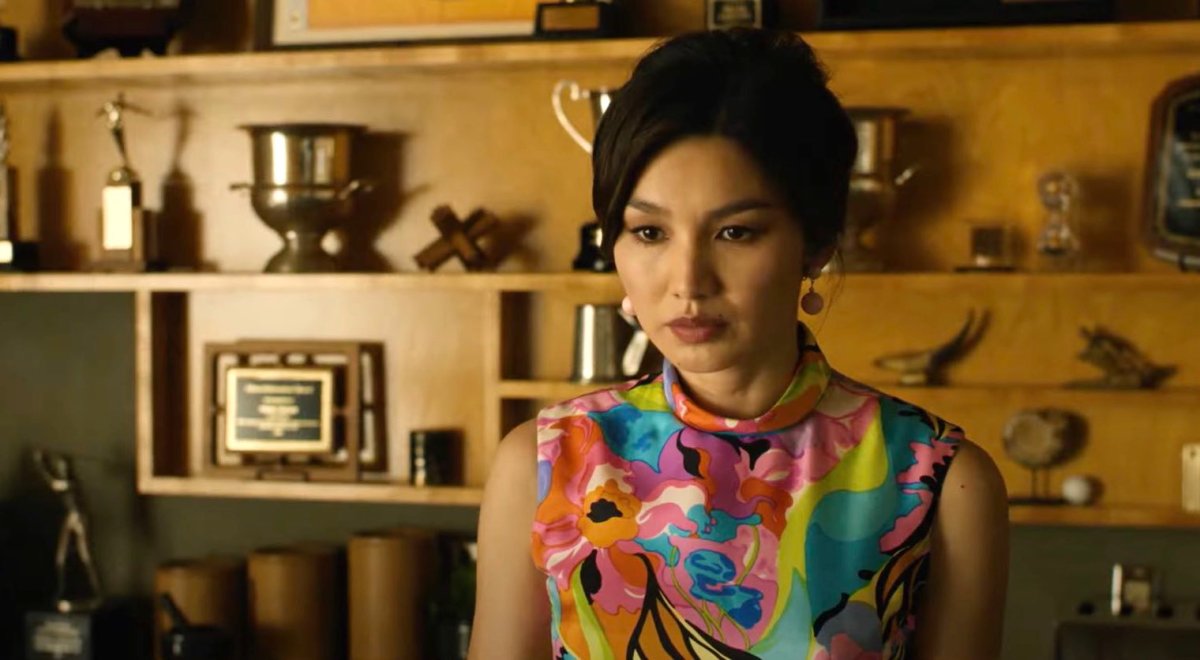
One part of this movie that really does not sit well with me is the inclusion of Kiki Layne’s Margaret being a character who tries to tell the other women of Victory that something is wrong, gets forced out of Victory because of it, and no one is willing to listen to her. Layne, a Black woman, took over the role when Dakota Johnson, a white woman, dropped out, and I don’t necessary think that anyone on the other side of the lens thought to adapt the work to include her in the story more, because having a Black woman be silenced by the white women around her and the men that are in charge and not really have anything else to say about that feels like a giant missed opportunity to call out the white feminism that this movie often upholds.
That then brings me to Gemma Chan. The wife of Pine’s Frank, Shelley is a character who does seem to be like everyone else throughout the film, and then suddenly, she seems to turn on Frank, says something about how it is her turn now, and is seemingly the new villain by the end? That’s a choice given that she’s one of the few women of color in the film, which doesn’t really have any sort of reasoning to not have more women of color included unless the messaging is that white women are more inclined to be trapped in this sort of scenario? Which could be the case! But if it is, that is something that the movie should tell me. Instead, I’m left wondering why the two women of color barely have screen time and are underused. And if it is a commentary on white women, then … that needs to be actually explored in the film.
None of it was clear, and it just left me feeling a negative way about how both Margaret and Shelley were depicted, which isn’t helped by their lack of screen time, either.
It’s also telling that the one person who points out that no one listened to Margaret before Alice was Frank, and everyone else seems to have moved on, but it just felt like something that needed to be adjusted to fit Layne as an actress and, instead, was brushed over after the recasting from Johnson.
The Andrew Tate effect
This movie is, very much so, attuned to the rise of people like Andrew Tate. Sure, filmed in 2020, the film had no way of knowing about Tate specifically, but it does tap into the trend of people making careers out of capitalizing on male insecurity so well that part of it works in the story. The twist of this film is one that you can definitely see coming, and I don’t really think the movie is designed to make you think otherwise (there are flashes throughout that allude to the twist right from the start), and yet, when it happens, there are aspects of it that feel particularly timely with Tate becoming such a prominent figurehead of this kind of ideology—his ideas of masculinity and providing for women and what women should look like. Those themes play in pretty well with the overall feeling of Victory and the role of Frank.
White feminism meets Ready Player One and a bit of Eternal Sunshine of the Spotless Mind
As for the movie’s influences that might give you an idea of what you’re in for if you go to see it, I’d say that it pulls from things like Ready Player One (which makes sense once you’ve seen the film) and Eternal Sunshine of the Spotless Mind—which isn’t a bad thing. They’re all films about controlling your own narrative and escaping your own reality, so it makes sense to me that the comparisons would be drawn.
And don’t get me wrong, I did genuinely have a fun time with Don’t Worry Darling. I just think that for the message the film was sending, there were ways to go about it that were less heavy-handed and more poignant than the last act of the film ended up being.
—
Don’t Worry Darling is worth a trip to the cinema for the powerhouse that is Florence Pugh. Her desperation as Alice and her determination to fight back against figures like Frank are why we love Pugh and her work so completely, and to see her take him on with the beautiful backdrop that is Victory? All the better.
(featured image: Warner Bros. Pictures)



